Fine Motor Skills Activities for Preschoolers
- Teaching
- September 7, 2024
- VOLT Learning
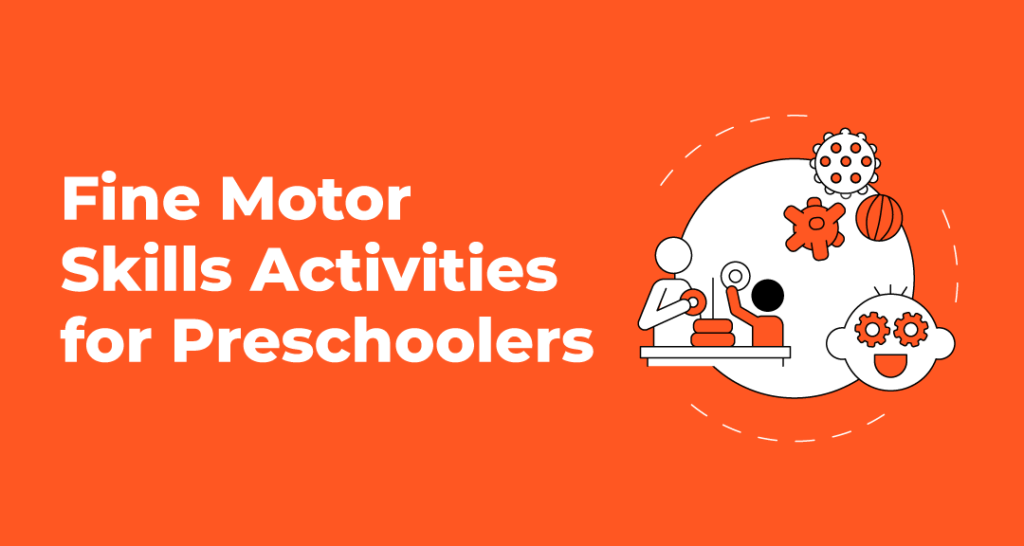
Do you know that beneath the surface of playful activities lies the blueprint of a child’s personality? From mastering the skill of tying shoelaces to holding a pencil, gripping crayons, buttoning coats, threading beads, moulding play dough, or carefully stacking blocks, every activity is a step toward becoming a confident preschooler.
These activities might look seemingly simple, but they are stepping stones towards shaping a preschooler’s personality, independence, and confidence by nurturing fine motor skills. Through these early actions, preschoolers get an opportunity to unlock a world of self-discovery which is more important than just physical movements.
It is crucial for teachers to make this development process of lifelong skills not just effective but also fun inside the classroom walls. –This is because fine motor skills directly influence the learners’ personality, self-expression and ability to engage with their surroundings.
What Are Fine Motor Skills?
Fine motor skills involve the coordination of small muscles, particularly in the hands and fingers, with the eyes. These skills are essential for performing everyday tasks like writing, buttoning clothes, cutting with scissors, and even eating.
For preschoolers, developing fine motor skills is a significant part of their growth as it directly impacts their ability to interact with the world around them.
These skills are not just about dexterity; they also involve hand-eye coordination, control, and precision. When children engage in activities that promote fine motor skills, they are essentially in the process of building the foundation for more complex tasks that they are likely to encounter later in life, both in and out of the classroom.
Why Are Fine Motor Skills Important?
Here are the reasons why the importance of fine motor skills cannot be overstated.
- Academic Readiness: Fine motor skills are crucial for academic tasks, such as writing, drawing and manipulating objects. Children with well-developed fine motor skills are better prepared to learn how to write letters and numbers.
- Independence: Fine motor skills help children gain independence by allowing them to perform self-care tasks, such as dressing, feeding themselves and brushing their teeth.
- Cognitive Development: These activities often require concentration, problem-solving and decision-making, which contribute to cognitive development.
- Social Interaction: Being able to participate in group activities, such as art projects or games, enhances social interaction and builds confidence in preschoolers.
- Long-Term Benefits: Children who struggle with fine motor skills may face challenges in school and daily life. Early intervention and practice can prevent these difficulties and set children up for success.
10 Engaging and Easy Activities to Build Fine Motor Skills
Developing fine motor skills doesn’t have to be a tedious process. In fact, with the right activities, it can be a lot of fun for preschoolers! Described below are ten engaging and easy games and activities to incorporate into your classroom.
- Play dough Activities: Encourage children to squeeze, roll, and shape play These activities strengthen hand muscles and enhance dexterity.
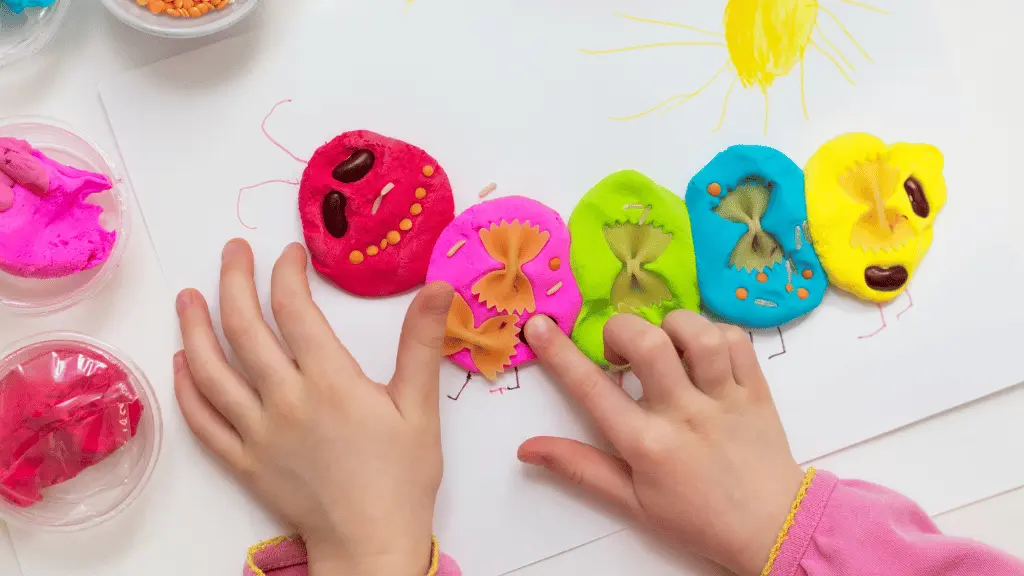
- Threading Beads: This activity provides large beads and strings for children to thread. This improves hand-eye coordination and finger strength.
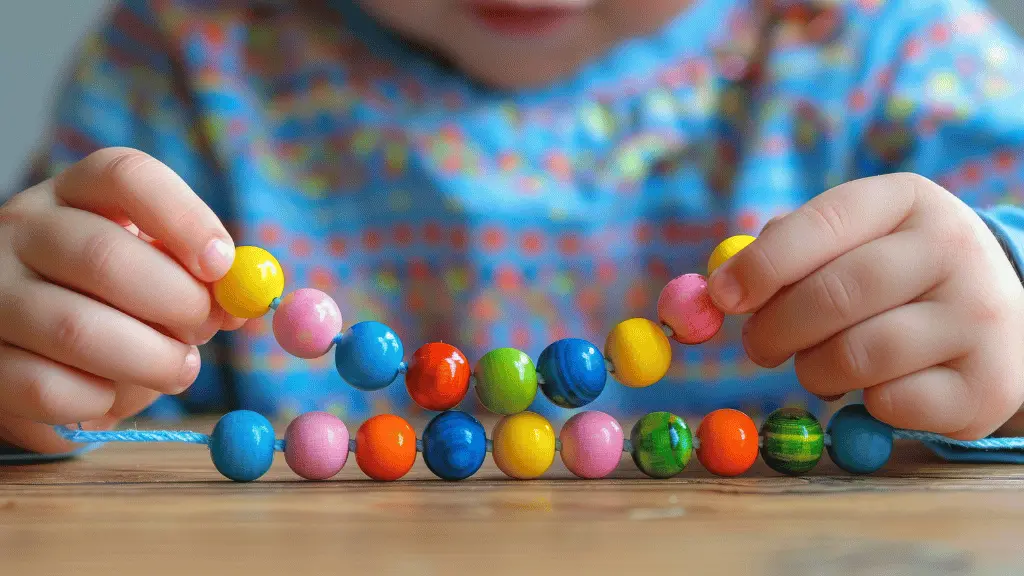
- Scissor Practice: Cutting along lines or shapes helps develop hand control and coordination. Start with safety scissors and simple patterns.
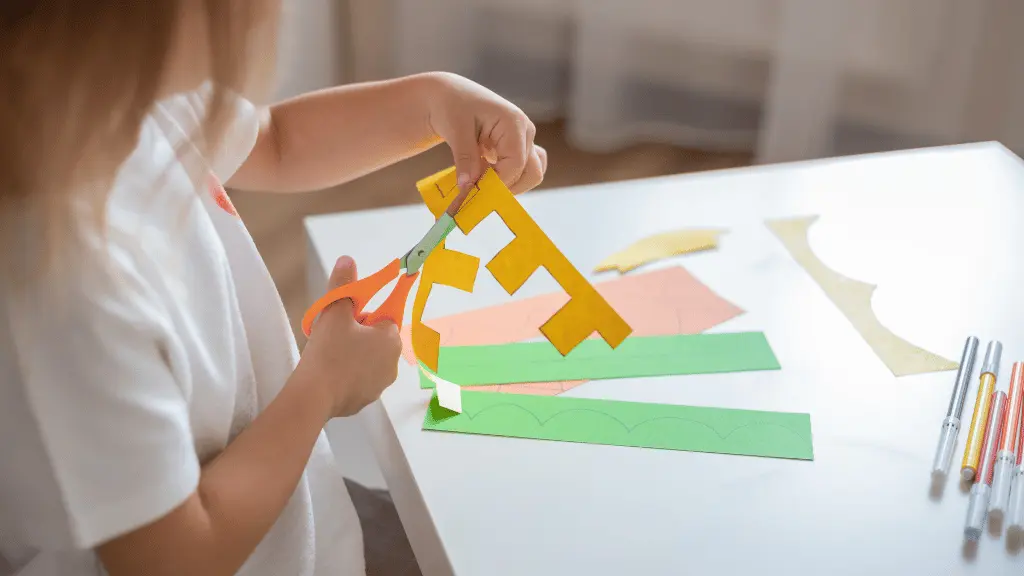
- Buttoning Boards: It involves the use of buttoning boards or old clothes to teach children how to button and unbutton. This fosters independence and fine motor control.
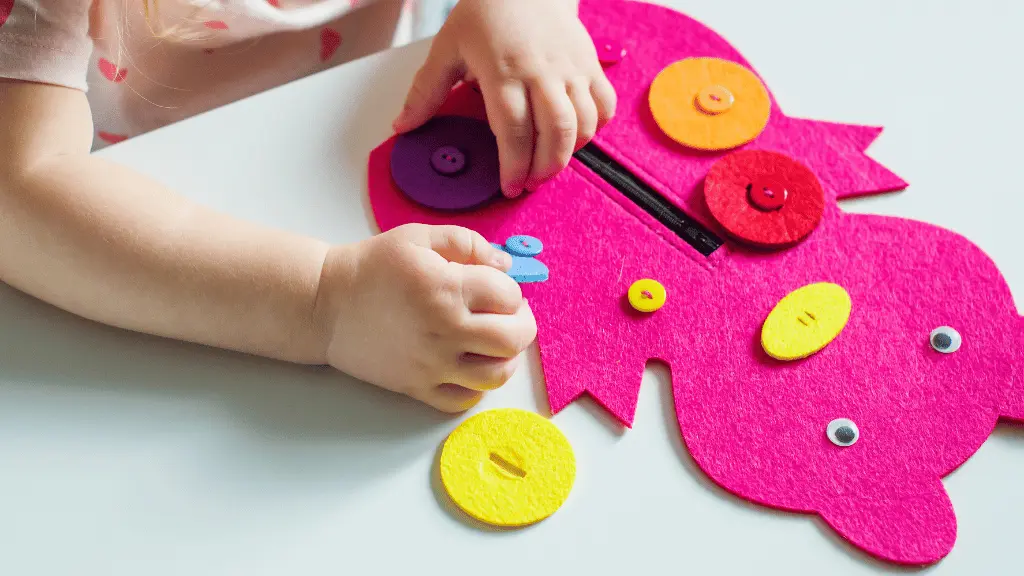
- Tweezers and Pom-Poms: Give children tweezers and small pom-poms to pick up and sort into containers. Such activities strengthen the pincer grip needed for writing.
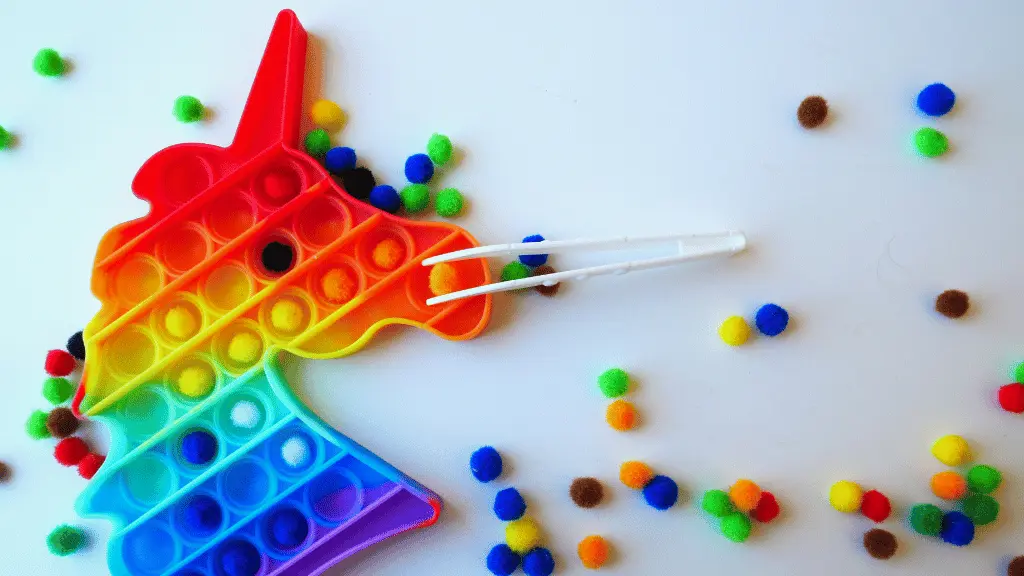
- Lacing Cards: Lacing cards with simple patterns allow children to practise threading and hand-eye coordination.
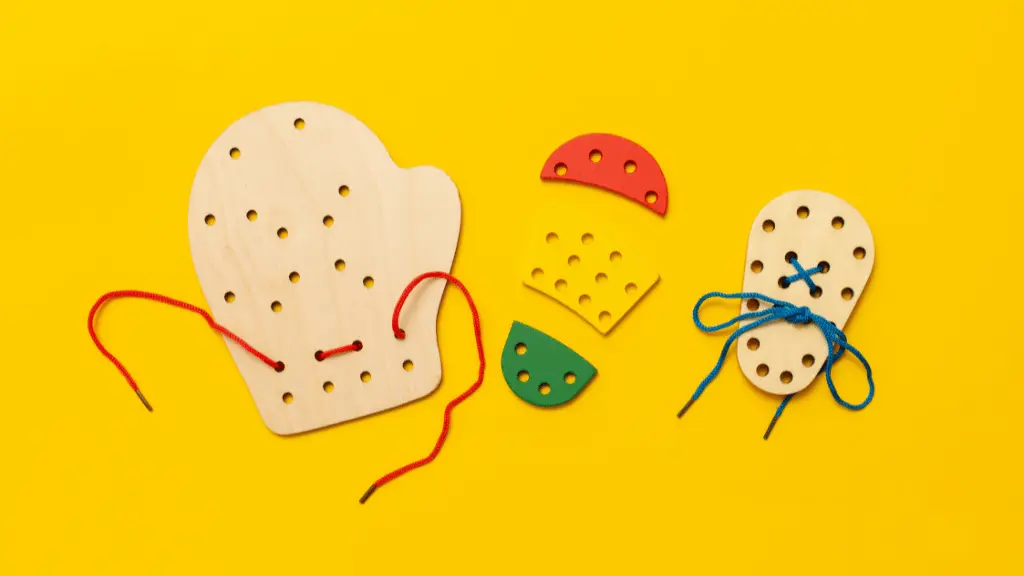
- Sticker Play: Let children peel and place stickers. It’s a fun way to develop precision and hand-eye coordination.
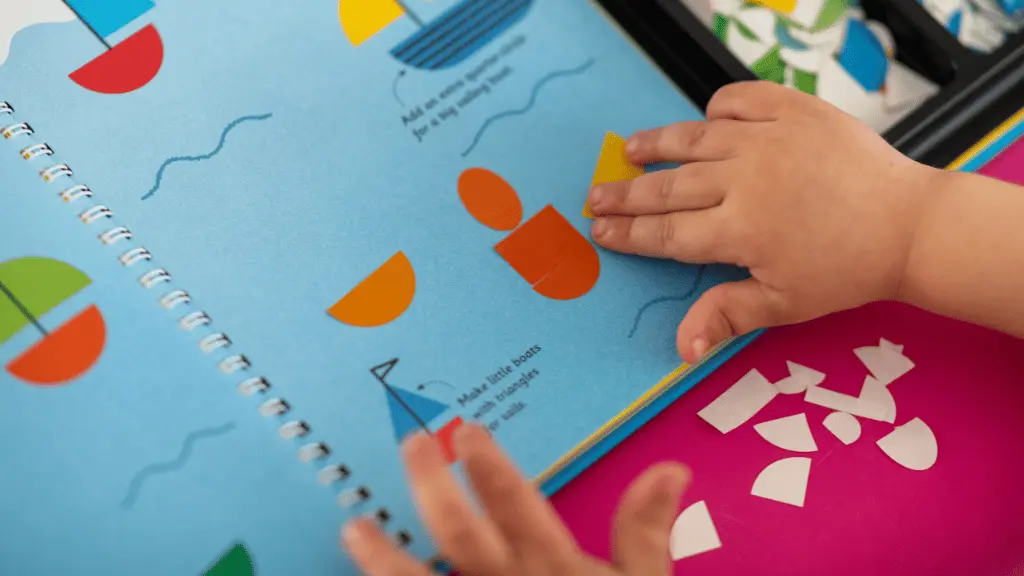
- Sensory Bins: Fill bins with rice, sand or beans, and hide small objects for children to find. This encourages fine motor skills and sensory exploration.
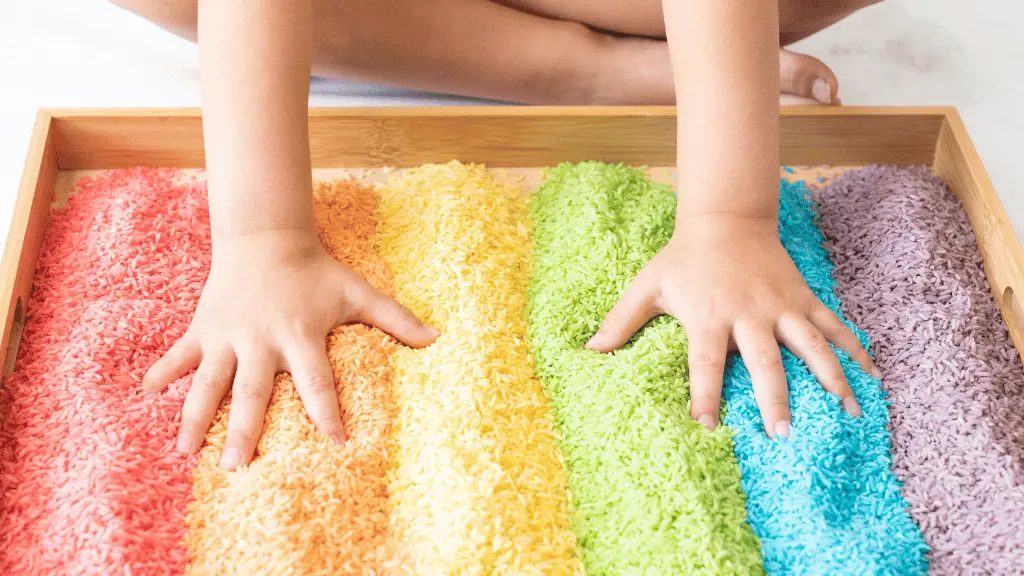
- Building Blocks: Stacking blocks or Lego pieces enhance hand strength and coordination while promoting creativity.
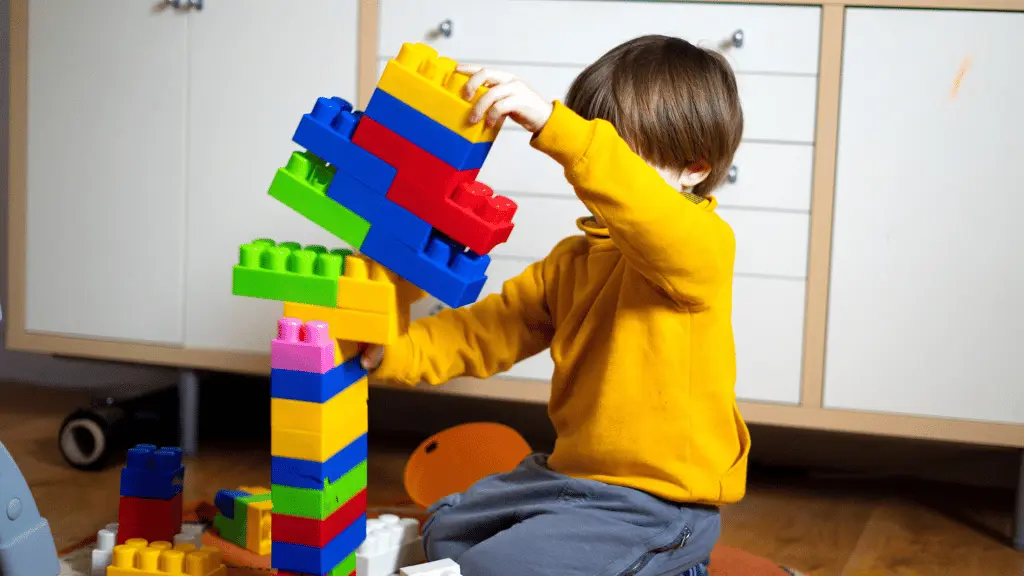
- Finger Painting: Besides being a sensory delight, finger painting improves finger strength and coordination as children manipulate paint with their hands.

Set stage for remarkable success with VIVA VOLT
The journey towards developing fine motor skills is an exciting one for both educators and students. Incorporating these activities into your classroom not only helps children develop essential skills but also keeps them engaged and motivated. But how can you take this to the next level?
Enter VOLT Learning digital resources, an innovative platform designed to support educators in fostering essential skills, including fine motor development, in a dynamic and interactive way. With a vast array of digitally-driven learning modules, VOLT seamlessly integrates into your teaching strategy, making skill-building an enjoyable and effective process for preschoolers.
Are you ready to empower your preschoolers with the essential skills they need to succeed? Discover how VIVA VOLT can transform your classroom. Visit our website today to explore our resources and start a free trial. Together, let’s build a brighter future, one tiny step at a time!



